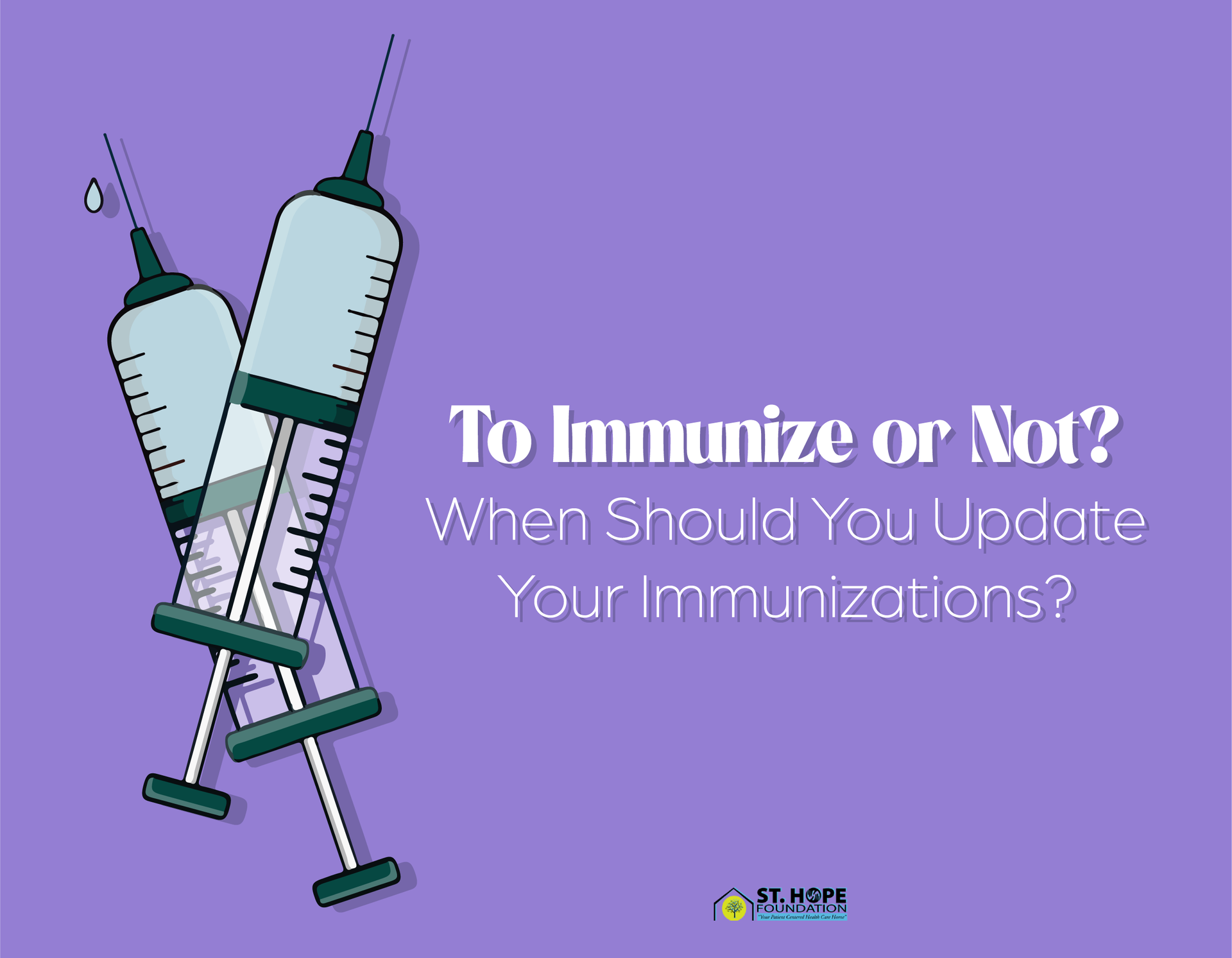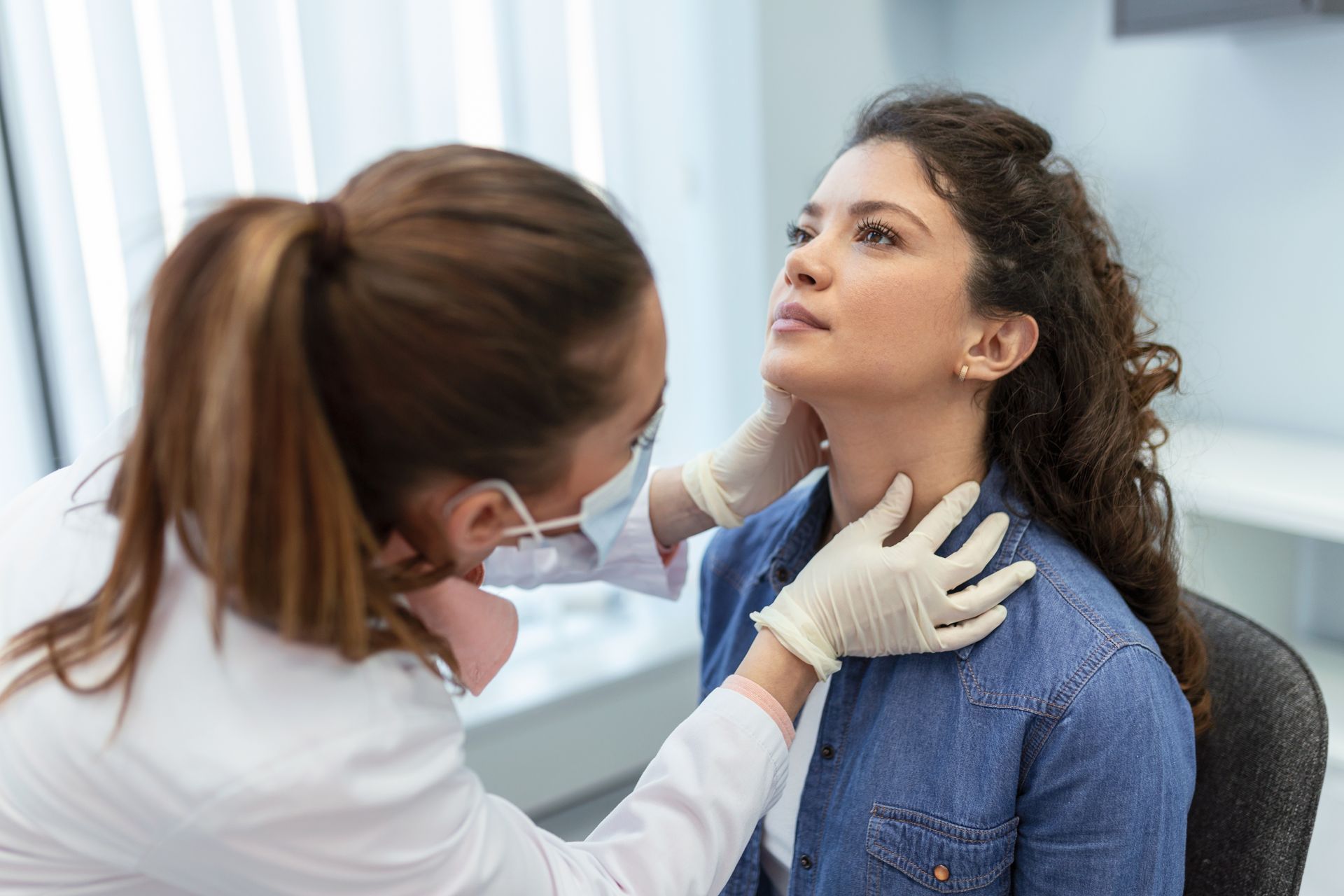Recent Posts
To Immunize or Not? When Should You Update Your Immunizations?

Immunization is a personal choice that many Texas residents face when visiting their primary care physician. The CDC recommends immunization with specific doses beginning during infancy. Your primary care physician will keep an updated immunization record on your behalf that you can request at any time.
Although some people may use the words “immunize” and “vaccinate” interchangeably, each term is generally used to denote a very specific (but related) thing.
Immunized Vs. Vaccinated: What’s the Difference?
Both immunized and vaccinated refer to a unique process. Vaccination is the act of administering a vaccine to a patient to stimulate an immune response. Immunization is the body’s response to vaccinations. Being “immune” means a person has protection against a disease.
Vaccines are not necessarily the only path to immunization for some diseases, but it’s often the safest and least uncomfortable option. People may also gain immunity from certain conditions via being infected with the illness and developing antibodies the old-fashioned way. Doctors often don’t advise that route, especially since some conditions may have permanent or fatal consequences.
What Does It Mean to be Immunized?
When you are immunized, you’ve physically gone through the process of becoming immune to disease, preferably via the administration of a vaccine. The vaccine in your body triggers an immune response to better prepare your immune system for encountering the disease and fighting it off in the future.
Immunization Record
An immunization record is the history of all vaccinations you’ve received. It will include the timeline for each dose. A copy can be requested through your primary care physician.
Immunization Schedule
The immunization schedule is a standardized list of required immunizations and their recommended administration timeline. This schedule is informed by the Advisory Committee of Immunization Practices and is reevaluated every three years.
The specific vaccination and their dosages will depend on you (or your child’s) age and gender. Many immunizations require multiple doses over a certain period. For example, vaccines for kids under five include:
- Tetanus Toxoid Vaccine—Babies and children under five receive DTap or DT. The first two shots are administered four weeks apart. The third shot is given six to 12 months after that. Booster shots are encouraged every ten years.
- Varicella Vaccine—Also known as chickenpox, the CDC recommends two doses: one for babies ages 12 through 15 months and an additional dose between four and six years old.
These are administered so that children can be immunized for dangerous and preventable diseases as soon as possible.
When Should You Update Your Immunizations?
The immunization schedule dictates when you should update your immunization. It will depend on your age. Routine updates may be required for maintain certain immunizations.
It’s important to keep your immunization updated so that you’re protected from preventable diseases. Having current immunization records may be required for school, employment or travel plans.
What Does It Mean to be Vaccinated?
A vaccine is administered to patients orally, nasally or via needle injection. Prior to vaccination you will likely not have developed natural immunity or resistance to the disease for which you are being vaccinated. Alternatively, your immunization may be wearing off or a new strain of a virus may be present in the environment (as is the case with yearly flu shots).
There are different types of vaccines you can receive. Each is created with consideration for:
- Who will receive the vaccine
- What the vaccine needs to protect against
- The best way to create the vaccine
Live Attenuated Vaccine
Live attenuated vaccines use a weakened version of the disease-causing germ. The similarity between the disease and vaccine triggers a protective immune system response that will not sicken healthy people. Live vaccines are considered a highly effective option for many patients and diseases.
Inactivated Vaccine
Inactivated vaccines are created with particles of the germ or virus that causes the disease. It is referred to as a killed vaccine because it utilizes the same substance but is not as strong as a live vaccine.
mRNA Vaccine
Also known as Messenger RNA vaccines, these create proteins to trigger an immune response in your system. Some COVID-19 vaccines use mRNA technology. Because they do not carry a version of the disease they were created to prevent, there is no risk of sickness to the patient when these are administered.
Update Your Immunizations in Houston, TX
To immunize or not? It’s your choice. We recommend staying up to date with the recommended immunization schedule and maintaining a current record for your safety.
At St. Hope, we provide immunization services to Texas residents through our primary care services. Book your next appointment today by calling (713) 778-1300.









